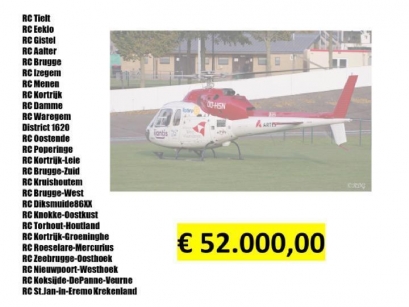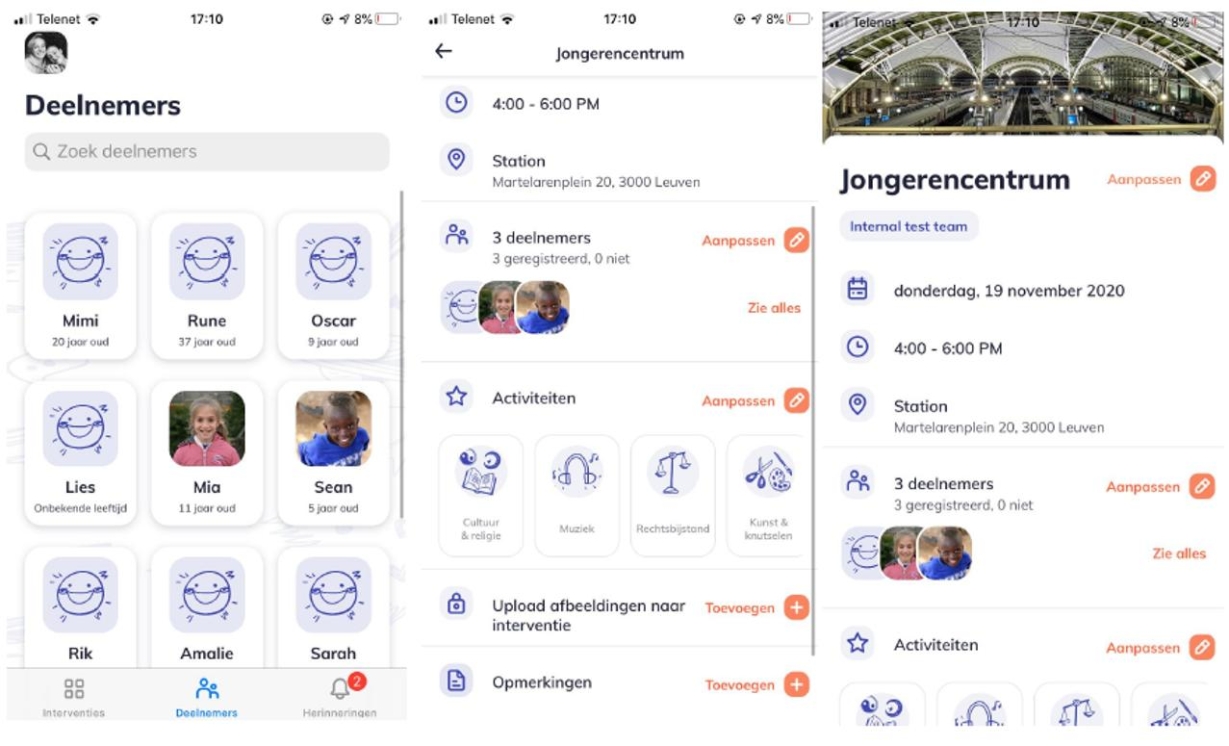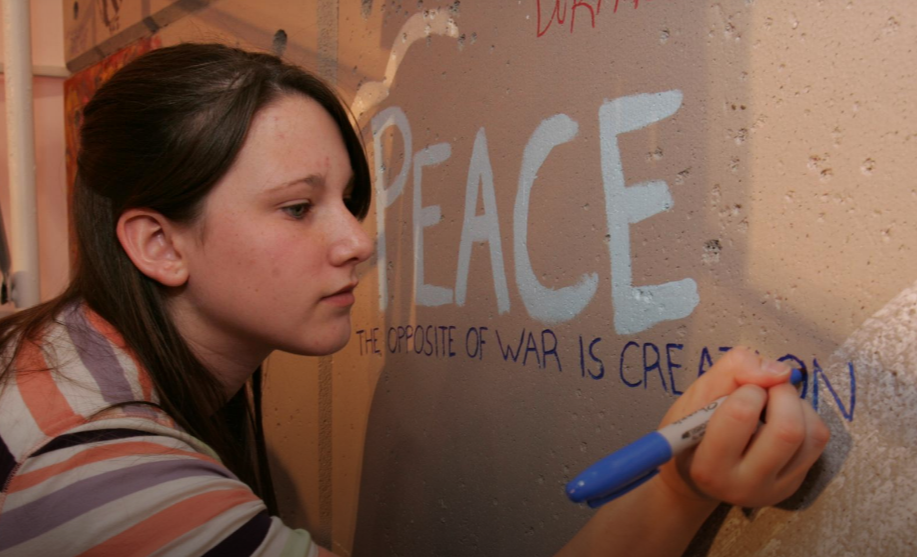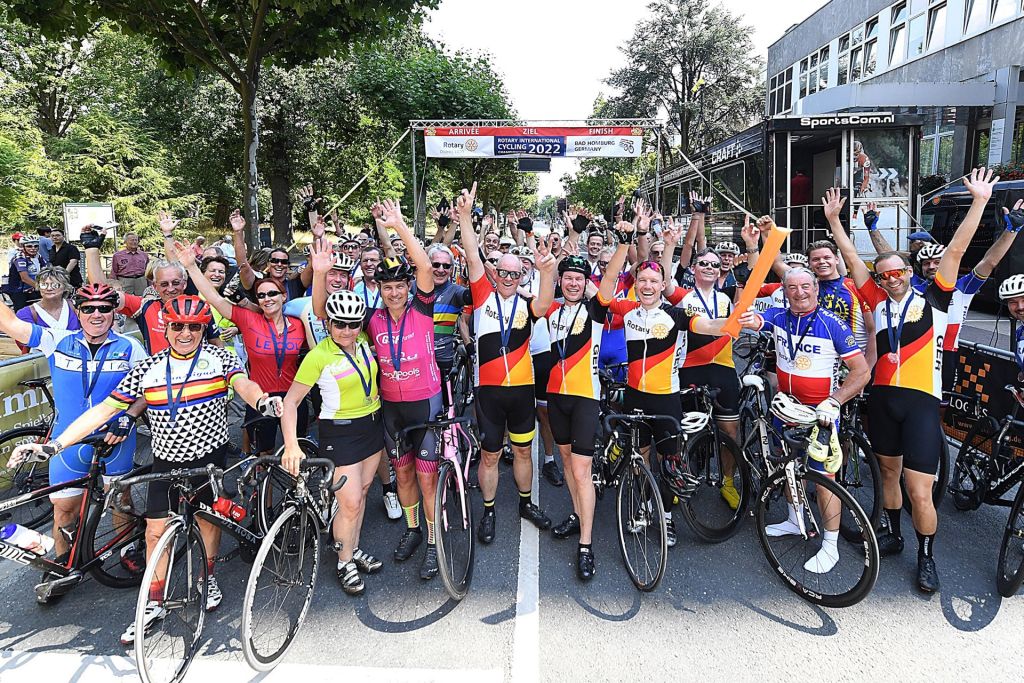Climate communicator and RI convention speaker Katharine Hayhoe wants us to speak to the heart
Katharine Hayhoe crunches the data. She analyzes the models. Then she explains it all, in terms the rest of us can understand — the enormity of our climate crisis, how it magnifies virtually every other serious challenge, and how all hope is not lost. Not by a long shot.
Hope remains as long as there are people who care enough to have a conversation, which, it turns out, is most people. In a 2023 survey, 63 percent of Americans reported they were somewhat or very worried about climate change. In Canada, that figure was 71 percent. In some of the countries with the largest numbers of Rotary members, places like Brazil and India, it was over 80 percent.
Katharine Hayhoe will be a keynote speaker at the Rotary International Convention in June. Register
“Those are the most important people to have conversations with, and most of those people are our friends, neighbors, and family,” says Hayhoe, an atmospheric scientist (and that’s just the start of her mind-bending resume). “It’s not about arguing with people. It’s not about going out and looking for that relative or neighbor or colleague who’s just obsessed with the idea that climate change isn’t real.”
Hayhoe is a specialist in finding common ground when talking about climate change, a skill she’ll demonstrate at the Rotary International Convention in Calgary in June. A Canadian living in Texas who is married to an evangelical pastor, she will talk on the subject to anyone who will listen, from Rotary clubs to churches to moms groups to the 4 million-plus people who have viewed her TED Talk. “Each of us is the perfect person to have a conversation with people who share our values, interests, and priorities in life,” she says. If you’re a dog person, talk to another dog person about climate change; if you play golf, talk to another golfer; if you are in Rotary, well, you guessed it.
Chief scientist for the Nature Conservancy and a professor at Texas Tech University, Hayhoe helps people understand the effects of climate change at a local level. She’s worked with civil engineers and water managers to assess the impact of climate change on their infrastructure and with cities and states to evaluate how they could be affected.
Hayhoe has won many awards and been named to lists including Time magazine’s 100 Most Influential People. The author of the best-selling book Saving Us: A Climate Scientist’s Case for Hope and Healing in a Divided World, she writes a weekly newsletter highlighting good news, not-so-good news, and actions you can take.
In advance of the convention, Hayhoe spoke with Rotary magazine senior writer Diana Schoberg about the history of climate science, what steps individuals can take, and hope. “The number one answer that most people gave for why they cared about climate change was love, especially love for the next generation, for our children,” she says. “Climate change is what stands between them and a better future.”
You often talk about an experience you had at a Rotary club meeting. Can you recount that story for us?
I still remember the first time I was invited to speak to a Rotary club in West Texas. I walked into the lunch, and right there was a giant banner of The Four-Way Test. And I looked at it and thought, this is the perfect test for climate change.
Is it the truth? It absolutely is. We know the climate is changing, and we know humans are responsible. We know the impacts are serious, and the time to act is now. We’ve spent over 150 years as scientists checking that.
Is it fair to all concerned? That one really hit me in the heart because that’s why I became a climate scientist. When I learned that climate change affects us all, but it doesn’t affect us equally — how the people who have done the least to cause the problem are the most impacted — the first thing I thought was, it’s not fair. The second thing I thought was, I need to do everything I can to help address this problem.
Will it build goodwill and better friendships to take action? The answer is clearly yes. When communities come together to make sure that they’re prepared to cope with flood or drought, storms, hurricanes, or wildfires, it builds goodwill and better friendships. Will climate action be beneficial to all concerned? Absolutely.
So instead of sitting down and having the chicken lunch, I parked myself on a chair in the corner and reorganized my whole presentation around The Four-Way Test. I’ll never forget, one of our neighbors, who’s a banker, stood up at the end and he said, “Well, you know, I never really thought this whole global warming thing was real, but it passed The Four-Way Test.”
Was there something about that encounter that changed the way you approach talking to groups?
As a Christian, I often speak to Christian groups and start with our shared faith. But this really brought home to me the power of framing what I had to say in someone else’s values. The impact was so profound on the Rotarians who were listening that it underscored the power of beginning with what we have in common and speaking to our hearts rather than our heads.
How could climate change impact the causes Rotary supports, like literacy, promoting peace, fighting disease?
One of the best descriptors I’ve heard of climate change comes from the U.S. military. They call it a threat multiplier. In other words, 9 times out of 10, we don’t care about climate change because of what it’s doing itself — if the planet were warming by a degree or 2 and that was all, it’d be a scientific curiosity. But we care about climate change because that warming of the planet is loading the weather dice against us. It is causing wildfires to burn greater area. It’s making hurricanes stronger. It’s causing sea level to rise. It’s causing extreme rain events to become more common, and droughts to become stronger, and heat waves to become a lot more dangerous. All of these changes are affecting our food, our water. They’re affecting the safety of our homes. They’re affecting people’s ability to have access to health care or education.
It’s like we have these buckets of issues that we care about. We care about education, we care about poverty, we care about hunger, we care about health and disease. We’re putting all this effort and time and funds into these buckets to help address these very, very urgent issues. But the buckets have holes in the bottom, and that’s climate change. Climate change is the hurdle we have to get past in order to actually fix the issues that we’re working on that we care about so passionately.
You mentioned that scientists have been investigating climate change for over 100 years. When and why did it become so contentious?
By the 1850s scientists knew that digging up and burning coal produced heat-trapping gasses that, as they built up in the atmosphere, would cause the planet to warm. In the 1890s a Swedish scientist named Svante Arrhenius calculated by hand how much the planet would warm if we doubled or tripled levels of carbon dioxide in the atmosphere. It was the very first climate model.
By the 1960s, scientists were worried enough that they warned U.S. President Lyndon B. Johnson of the risks of climate change. And by then all the big oil and gas companies and all the big car companies had their own scientists doing their own research showing what would happen if we continued our addiction to fossil fuels and gas-powered cars.
So did the whole world immediately change? No. In fact, something like 70 percent of all our carbon emissions have happened since the 1970s. A big part of it is due to our human psychology. We typically don’t make changes until we actually see the impacts with our own eyes.
So when did it begin to matter? In 1988 there was a very hot summer. NASA scientist James Hansen testified to Congress saying, yes, global warming was making heat waves more common. Time magazine had a cover with the planet on it. The United Nations Framework Convention on Climate Change came together in 1992, and every country in the world, including the U.S., agreed to prevent dangerous human interference with the climate system.
When fossil fuel companies realized that climate change was transitioning from a future issue to a present issue, they funded some of the same people who had worked with the tobacco industry to muddy the waters on whether smoking actually causes cancer, as described in great detail in the book Merchants of Doubt. They said, we don’t have to convince people that climate change isn’t real. We just have to say we’re not sure.
Nobody, not even the scientists who work for the fossil fuel industry, had ever had a problem with the basic science. It’s the same science that explains how stoves and fridges heat and cool food, and there aren’t a lot of people who think stoves don’t work. People started to question the science not because they actually had a problem with the science but because they didn’t want people to act. And the best way to prevent action is to say it’s not a problem in the first place.
Do the actions of an individual matter?
Having solar panels, eating a plant-based meal, taking public transportation, or switching your light bulbs all eliminate a little bit of those heat-trapping gasses. But I crunched the numbers, and I realized that even if everyone who’s worried about climate change and who has the resources to make changes did so, it still would only address about 20 percent of the problem.
Looking at history, abolitionists boycotted sugar and cotton because those were typically produced by slave labor, but boycotting sugar and cotton was not what led to slavery’s abolition. Women got the vote, civil rights were enacted, apartheid ended, gay marriage was legalized because people used their voices.
Now, you’ll see pinned to the top of my social media accounts a list of the actions that individuals can take that make the biggest difference, based on the social science. Number one is to have a conversation about why climate action matters and what we can do: not just polar bears and ice sheets, but what’s happening in my life and to the people and places and things I love, and then what can my school, my organization, my Rotary club, my business, my church, what we can do together to make a difference.
The second thing is join a climate action group to amplify your voice even more. Number three is to start conversations where you work or where you study. You see a common theme here. Number four is to look at where you keep your money, because often we don’t realize that investing $1,000 in a bank that invests that money in fossil fuels produces the same amount of carbon as flying from New York to Seattle once a year. And then use our voice with elected officials. In the U.S., 99.9 percent of elected officials are not federal, and research by the Yale Program on Climate Change Communication has shown that elected officials systematically underestimate how much their constituents care about climate change because they never hear from them.
And then the last thing on the list is make changes in your personal life. But make those changes contagious by talking about them. Individuals have changed the world before, and I’m convinced we can do it again. It all begins with using our voice.
I was struck by your newsletter. Have you had criticism that it’s too hopeful?
For some reason, we are just obsessed with the idea that guilt, shame, and fear are enough to not only spark but to maintain long-term behavioral change. Fear certainly wakes us up. We have to understand there’s a problem — that’s one side of the coin, but we also need the other side of the coin. We need to understand what we can do about it. In the U.S., two-thirds of people are worried. But you know what percent are activated? Eight percent.
If they’re worried but not activated, more worry is not going to activate them. More worry is just going to paralyze them. What they’re missing is what social scientists call efficacy. Efficacy is often what we might refer to as hope — the idea that if I do something it will make a difference.
It isn’t wishful thinking. It’s not burying my head in the sand. Hope requires action, and action breeds hope. The social science is clear that doom and gloom messaging wakes us up, and it gets the most clicks and shares on social media. But, and these are the words of the researchers, it is the absolute worst at motivating people to act. Instead, it simply paralyzes us, and that is the last thing we need right now. We need to be empowered to act.
This story originally appeared in the May 2025 issue of Rotary magazine.
Visit :-
https://www.rotary.org/en/you-are-the-perfect-messenger











